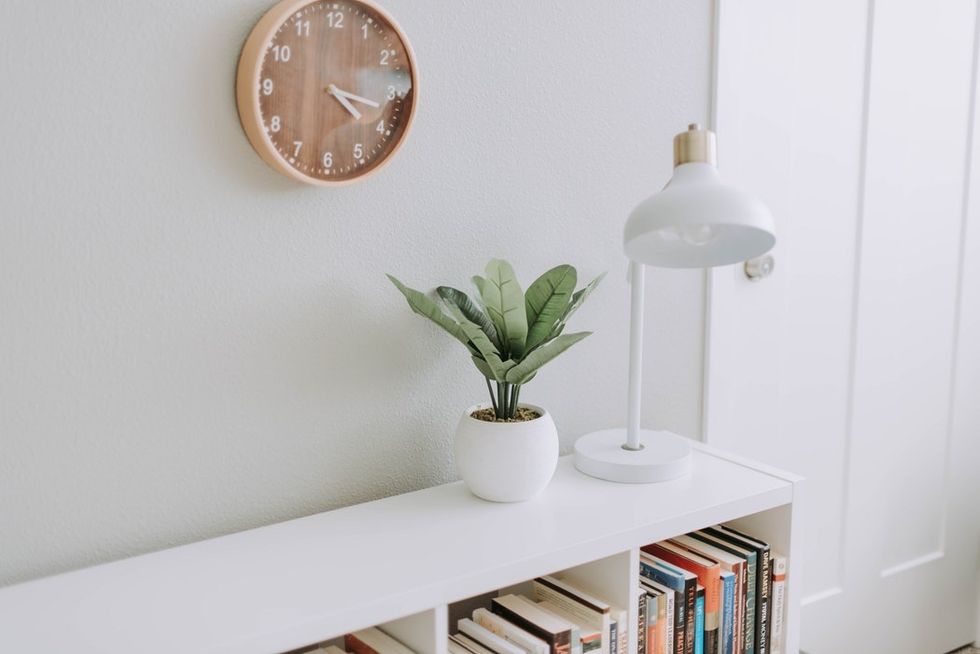Mental health awareness is one of those topics that will never be spoken about enough. It will never get old or fade away. There will never be too many resources or coping mechanisms. We will never stop sharing and caring and advocating. From now on, it's ingrained in our very society – we will never know a day without it.
But although that's true, it can be hard to keep it at the forefront of your own life. Although it's important, incredibly so, we slip up from time to time and fall out of touch with the ways we keep ourselves in check.
1. Spend some quality time alone.

Constantly surrounding yourself with people is all fun and games until you realize that it also serves as a great distraction from taking the time to do a systems check. Carve out time in your day or your week or your month to really figure yourself out. You might find that everything is okay and that you're making good progress, but maybe you'll realize that something's off and you want to address it as soon as possible. It never hurts to know who you are and where you stand, regardless of your mental health.
2. Be candid and vulnerable with your people.
On the flip side, lying to others about how you feel is just another form of lying to yourself. Find the humans in your life you feel comfortable with and be open about the things in your life and how they're affecting you. Voicing your thoughts, no matter how scary it might seem, will help lighten the weight on your shoulders. Don't let your mental health journey be a lonely one. Let others in and be honest about what you need.
3. Establish some form of self care.

It can be in the form of treating yourself to your favorite dessert or lighting a candle while you take a warm bath. Or maybe it's simply getting all the things on your to-do list done in time. Setting aside little things that make you happy is incredibly important. Sometimes it's material objects and sometimes it's forcing yourself to be productive. Whichever one you choose, it's important to make it part of your routine.
4. Find the help you need before you need it.
I've always said that you don't need to have a mental illness in order to go to therapy. Everyone, even those who are mentally sound, benefits from a better understanding of themselves. That being said, if you know you're prone to episodes of mental illness or that you think might need help, it never hurts to go ahead and make the appointment. Finding the right counselor can be a long process, so don't wait until you're balancing on the edge to find the right hand to pull you back over.
5. Clean your room.

This seems silly but bear with me. A cluttered mind can often lead to a cluttered space and before you know it you're knee deep in week-old laundry and drowning both mentally and physically. Cleaning your room can be a great first step to clearing away the fog and the daze that often comes with bad days or weeks. It helps to see progress, no matter where it's coming from.
6. Try to make healthy choices.
I know my anxiety and depression are rearing their ugly heads when I start to lose my appetite and start to eat infrequently and unhealthily. This doesn't mean to replace all your meals with kale salads and protein shakes (God knows I'll probably never do that), it means making a point of having breakfast, lunch, and dinner – not one or two of three. It means that when you do eat, try to have meals and not whatever's most convenient. Much like cleaning your room, putting effort into any aspect of your life reflects in every aspect of your life.
7. Keep track of the highs.

I mean it – write it down. Spiraling is hard to do when you have physical reminders of the ways in which things have gone right in your world. Try to jot down the good days or the days in which you laughed more than you cried. The days where maybe you didn't cry at all. It doesn't have to be huge. Relish in the little victories, because that's all life is. Celebrate the good days, even when you're in the middle of a bad one.



















